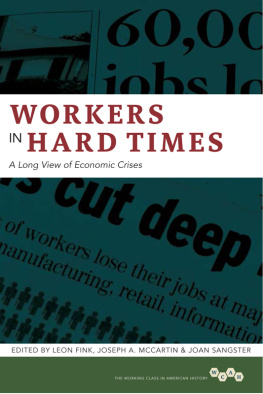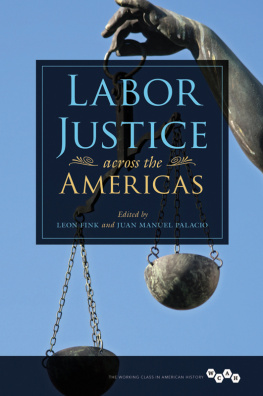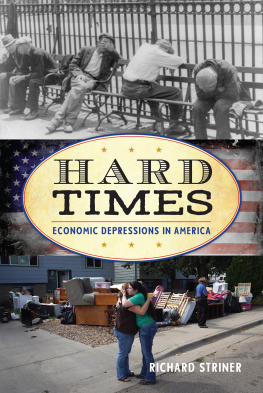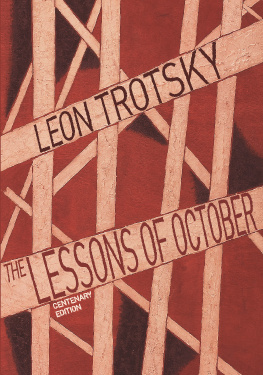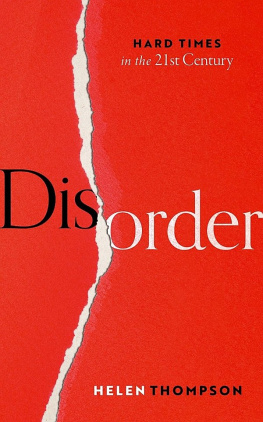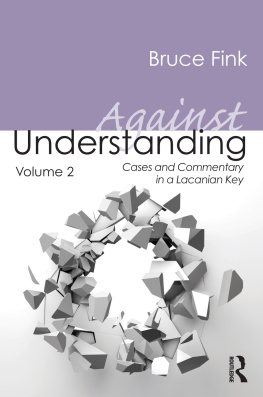Transformative Power: Lessons from the Greek Crisis and Beyond by Hilary Wainwright was previously published in Socialist Register 2013 and has been reprinted with permission of the Merlin Press Ltd.
Merlin Press Ltd. www.merlinpress.co.uk.
2014 by the Board of Trustees
of the University of Illinois
All rights reserved
Library of Congress Cataloging-in-Publication Data Workers in hard times : a long view of economic crises / edited by Leon Fink, Joseph A. McCartin, and Joan Sangster.
pages cm. (The working class in American history)
Includes bibliographical references and index.
ISBN 978-0-252-03817-4 (cloth : alk. paper)
ISBN 978-0-252-09597-9 (ebook)
1. Working classCase studies.
2. Business cyclesCase studies.
3. Economic policyCase studies.
I. Fink, Leon, 1948 II. McCartin, Joseph Anthony.
III. Sangster, Joan, 1952
HD 4854. W 597 2014
331.09dc23 2013034370
We dedicate this book
to the memory
of David Montgomery:
scholar, teacher, friend .
Introduction
Across the industrialized world, urgent questions have been raised and in some cases reopened by recent events. The financial crisis that rocked the global economy and led to a steep downturn in 2008 has caused mass suffering and taken a severe toll on working people and their collective organized strength. The accompanying loss of popular confidence in governments and financial institutions has triggered protest movements against austerity measures in Greece and Spain, and against the depredations of the one percentas identified by the Occupy Wall Street movementin the United States.
As the world economy struggles to cope with the last effects of the Great Recession amid growing inequality and stagnating incomes for the many, the impact of the economic crisis on workers has moved steadily toward the center of public and scholarly discourse. This volume puts the present economic crisis and its impact on workers in historical perspective, situating recent developments in the context of previous economic crises that have marked the industrial era. For, while much as been written about the origins and impact of the present crisis, most of it treats that crisis in historical isolation, and most of it treats workers as mere casualties or as an afterthought, if at all.
The volume is premised on the notion that the historical contextualization of the present economic crisis demands an approach that is both transnational and cross-disciplinary, and one that takes the experiences of working people seriously. Thus, the essays included here, which (but for one) were first presented at a conference at Georgetown University in September 2011, sponsored by the journal Labor: Studies in Working-Class History of the Americas and Georgetowns Kalmanovitz Initiative for Labor and the Working Poor, address the history of economic crises in North America, Europe, Asia, and Australasia, and draw on scholarship in history and political economy. These essays push us toward a rethinking of the relationship between capital and labor, the waged and unwaged, the employed and jobless. They reposition thinking about economic crises in transnational perspective and consider how states, ranging from capitalist to communist, struggled and failed to cope with past economic crises, with consequences that were often devastating for workers. Yet the essays in this volume do not cast workers and their movements as mere victims of economic calamity and restructuring. They suggest various ways in which workers agency was expressed during periods of disempowering change, including this most recent period.
Putting the recent economic crisis in historical perspective, these essays also suggest its distinctiveness from past crises by highlighting the degree to which this crisis has emerged from a particular historical moment in the history of global capitalism, a moment shaped by the framework of neoliberalism. The contextualization helps make clear that the present economic restructuring, more than simply a deep downturn in the business cycle, might best be understood as a moment in the restructuring of a global regime of capital accumulation and labor distribution that is likely to have profound, enduring consequences for ordinary people the world over.
Toward a Long View of Economic Crises
The essays in this volume push us toward the long view. Long before debates about the necessity of state-sponsored unemployment insurance, or economists theories of long waves of capitalist development, workers were well acquainted with the experience of economic crisis. Severe downturns in the economy were filtered through daily life as degraded work, less work, no work, making do through the household economy, intensified work, informal labor, bartering, forced public labor, charity, relocating, and, at the extreme end of the spectrum, illness and starvation. Across the globe, this array of responses to crisis remains central to the lives of the working class, reminding us of what Bryan Palmer and Gaetan Heroux in their contribution to this volume call the continuum of waged and unwaged labor that characterizes the ongoing process of capitalist proletarianization, dispossession, and exploitation.
In the industrialized nations that are the focus of this book, economic crises were apparent long before industrialization, hitting rural producers and self-employed artisans in debilitating ways. Still, the increased importance of a market economy in which wage earning was central, and the eventual (if very uneven) triumph of industrial capitalism, meant that economic crises had increasingly visible, concentrated effects on the working class, simply because more people were dependent on the wage system for survival. Indeed, before the postWorld War II period, some argue, unsteady rather than steady work
Over time, one can point to changes in state, employers, and workers views of economic crises, particularly how these actors thought they should be handled. In terms of one of the most visible manifestations of crisis, job loss, nineteenth-century notions of self-help, voluntarism, and the primacy of private charity gave way, by the mid-twentieth century, to more state intervention, professional and expert assessments of employment, combinations of private and public relief, unemployment-insurance plans, and internal union protections. This is not to suggest a whiggish history in which crisis is increasingly managed well. State aid for the jobless, for example, did not become an inalienable entitlement for the working class; in recent decades, hard-won economic supports have been removed, as nineteenth-century notions of voluntarism and self-help have reappeared in new, neoliberal forms. Moreover, these very broad changes were experienced differently according to race and gender, and they varied considerably across region and nation. Distinct national political cultures and path dependencies marked out diverse experiences of unemployment and welfare, as indicated in essays by Alvin Finkel and Melanie Nolan in this volume.

